The refrigerant is an essential contributor to your AC's heat exchange operation. However, you may wonder if low refrigerant will damage the AC compressor. Wonder no more! We found the answer through our in-depth research.
Operating a compressor with insufficient freon in its system poses a significant risk to its components. The low freon levels can cause your compressor unit's early failure or the failure of other internal parts.
That was pretty straightforward. Keep reading as we address more relevant questions relating to this matter. With that said, let's dive in!
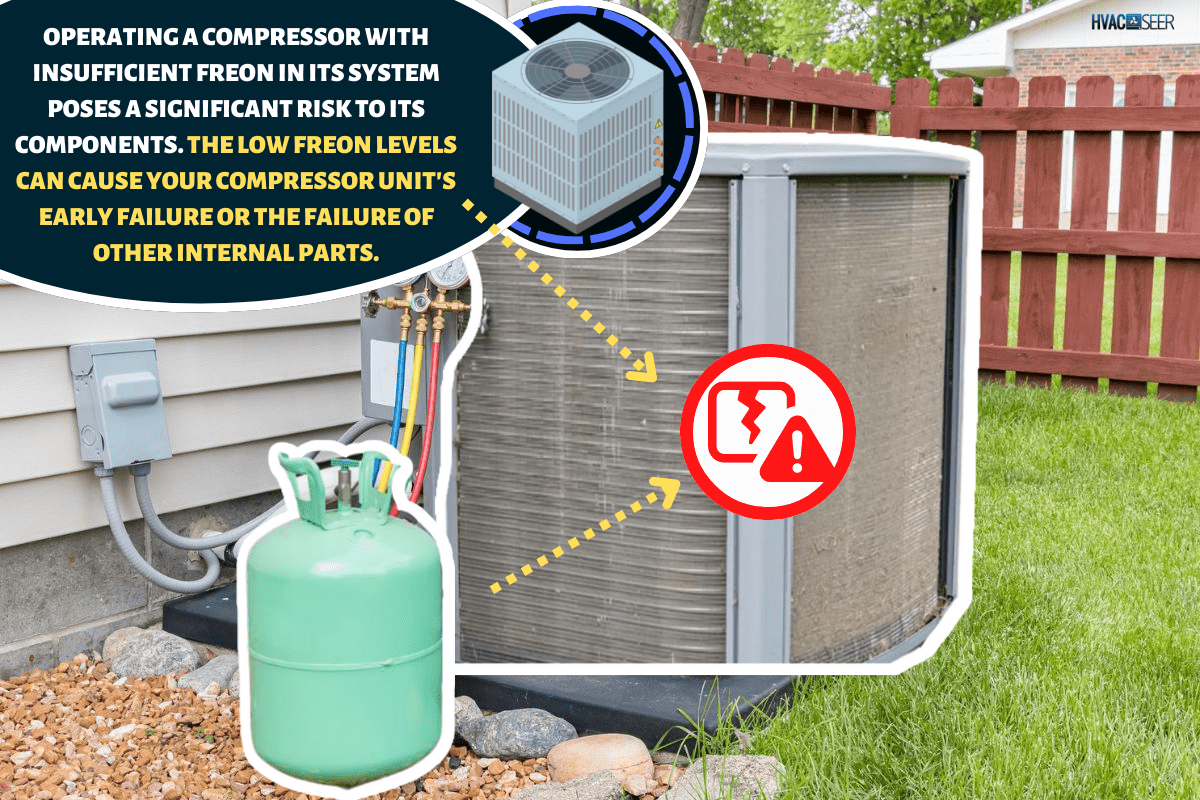
How Does An AC Compressor Operate?
It would be better if we first discuss how your compressor works. This way, you understand better how your compressor cycles freon within its system.
The condenser unit houses your AC compressor. Here, the refrigerant cools off as it releases heat via the condenser coils. Generally, heat naturally flows to cooler places.
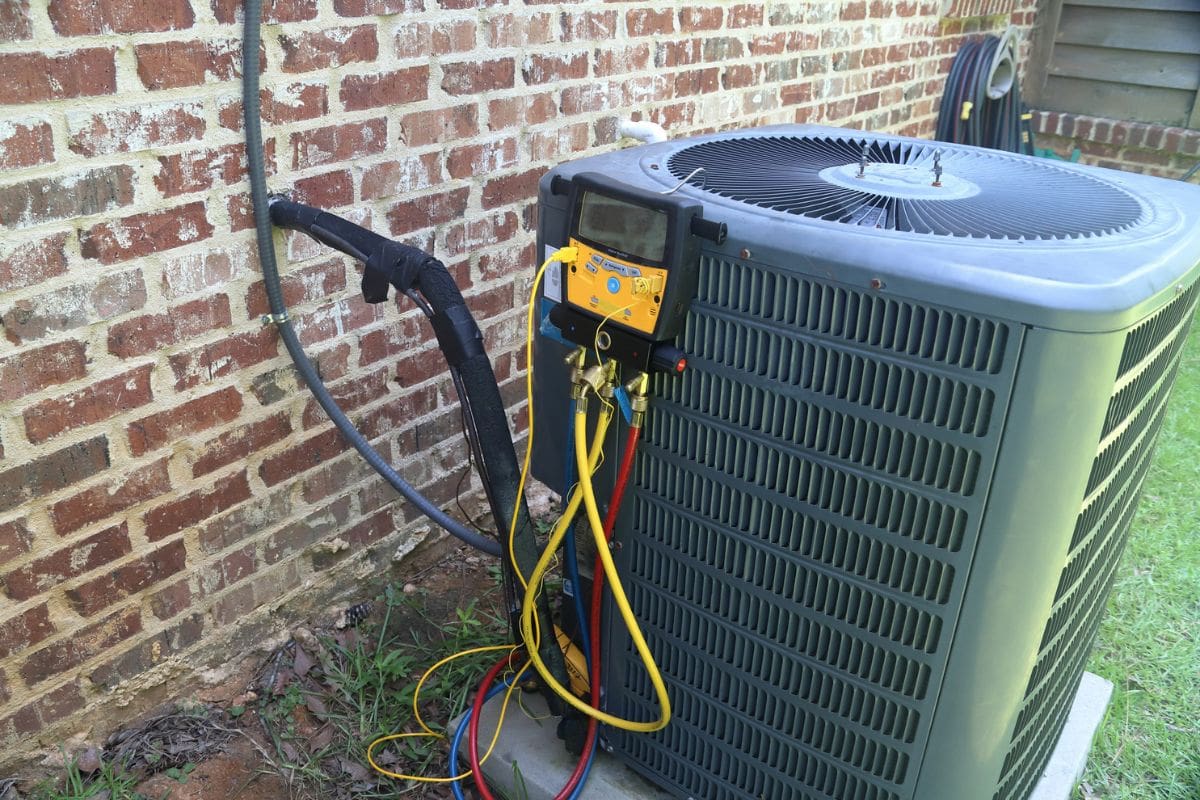
Liquid freon is pressurized while it circulates in the evaporator coils, thus turning into a cold gas with temperatures of about 40° F. At this temperature, the refrigerant can absorb heat from the air and transfer it to the compressor.
Here is a step-by-step elaboration on how your compressor works:
- The refrigerant gets to the compressor as a low-pressure superheated gas.
- The compressor compresses the superheated gas, increasing its pressure. Consequently, the refrigerant converts to hot gas.
- The hot gas flows from the compressor to the condenser coils. As the refrigerant flows through the condenser coils, it turns into vapor and, eventually, a liquid. As it changes state, the refrigerant releases heat via the condenser coils.
- The refrigerant gets to the end of its loop as a cold liquid. It then flows to the restriction.
- The restriction regulates the quantity of refrigerant delivered into the evaporator coils.
- This process continues as long as your air conditioner unit operates.
Please note that some compressors can invert this process. In that case, the output air is hot rather than chilly.
Will A Compressor Run With Low Freon?
Your air conditioner compressor's primary function is to compress freon, creating a pressure difference that allows the refrigerant to flow continuously.
The air conditioner's compressor may not turn on if the refrigerant level falls below the safe level. If the AC runs with insufficient freon, the compressor may fail prematurely or experience internal component failure.
So, avoid using an AC with inadequate freon to avoid further straining your compressor or its components.
We suggest calling your nearest HVAC service center to fix this problem for you.
What Type Of Freon Does My AC System Use?
Over the years, different refrigerants have been used in air conditioning systems. These include chlorofluorocarbons or CFC-12 and hydrochlorofluorocarbons or HCFC-22, also known as R-22.
In the 1990s, the CFCs freon was phased out. The phase-out was based on the mandate of the U.S. Clean Air Act law and the Montreal Protocol on Substances that Deplete the Ozone Layer.
Starting on 1 January 2020, the U.S. banned producing or importing new HCFC-22. However, HCFC-22 usage on older air conditioning units manufactured before 2010 is still permitted.
Also, the used HCFC-22 freon cleaned up and modified to meet the new freon standards is still available.
AC systems manufactured after 2010 use other ozone-friendly freons like the hydrofluorocarbons HFCs R410A. According to EPA, the R410A refrigerant is available in many respectable trader names, such as the following:
- Puron®
- SUVA 410A®
- Forane® 410A
- GENETRON AZ-20®
How Do I Know If My AC Compressor Is Low On Freon?
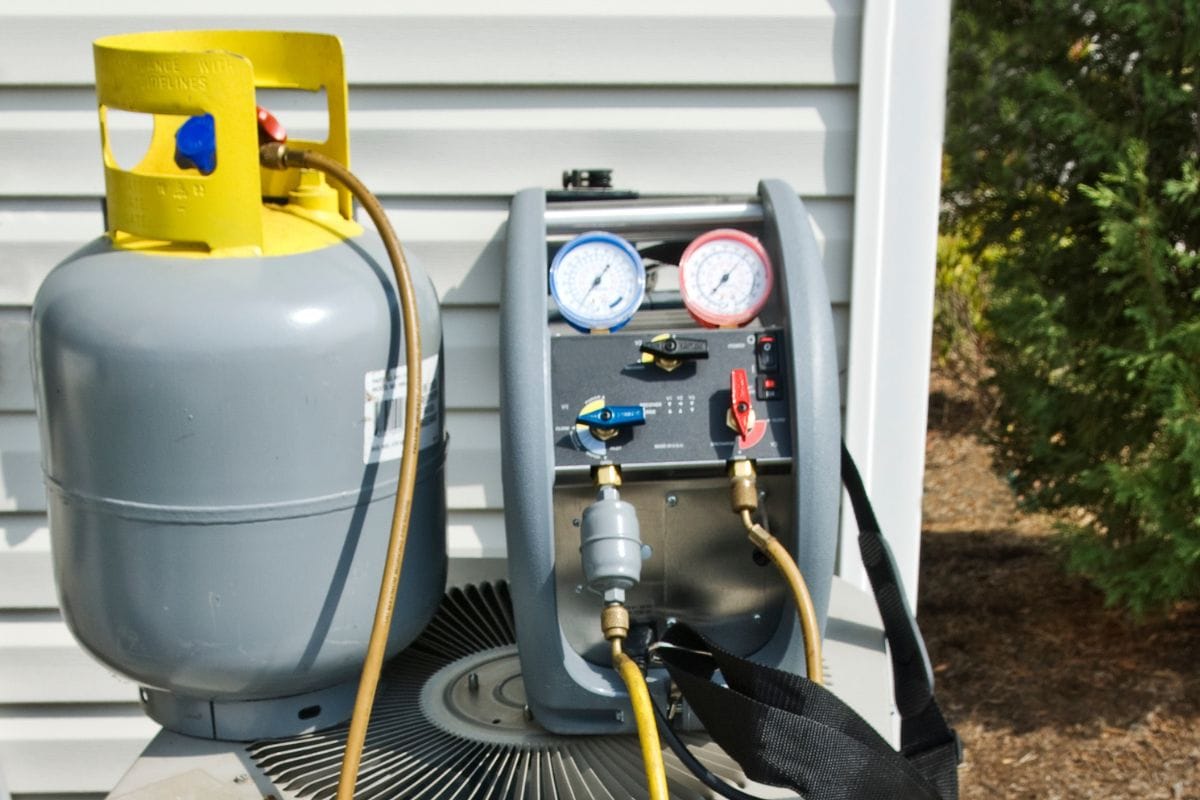
The compressor is one of the essential components of your air conditioner system. Therefore, your air conditioner can't function properly if your compressor's freon hits a critically low level.
The negative effect of running your compressor with low freon will also impact your house's overall comfort.
Knowing the signs of low freon levels in your AC compressor is crucial in identifying the problem and, consequently, charting a way to remedy the issue.
These are the common signs of low freon levels in your compressor:
Your Home Takes A While To Cool Down
When low freon is an issue for your compressor, it forces your air conditioner to work even harder to compensate for airflow demand. You can expect your air conditioner to cool a four-size bedroom house by 10° F within three hours.
But factors such as your AC system's cooling capacity, the age of the AC unit, and how proactive you are at maintaining your AC affect how effectively the unit cools your home.
If your air conditioner takes too long to cool your home, its freon levels may be low. Contact your HVAC specialist to have it recharged so you can restore the air conditioner to optimal functionality.
Vents Blow Warm Or Hot Air
Although vents blowing hot or warm air can indicate many problems, low freon quantities could be one of them.
The Thermostat Never Reaches The Proper Thermal Set Point
The ideal thermostat set point during summer is between 70–78 °F. When your thermostat has trouble regulating temperatures to the set thermal level, your compressor may have a low freon issue.
Surges In Your Power Bills
You can identify low freon problems by comparing your current power bills with your previous bills. Your cooling bill increases since the AC runs longer as it tries to cool your home to compensate for its inefficiency.
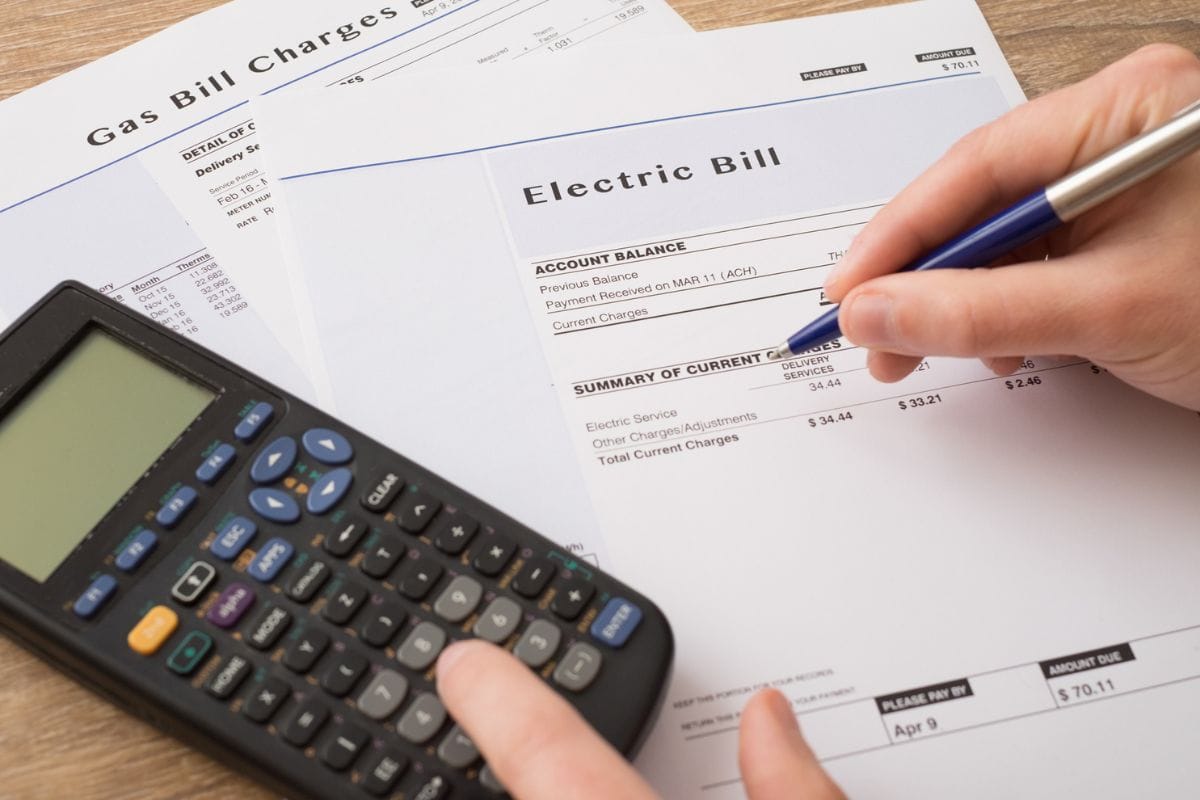
Ice on Evaporator Coils
Low freon issues can lower the evaporator's ability to absorb heat.
So, the evaporator coils fail to absorb enough heat to raise the refrigerant's temperature. This will cause moisture to condense along the coil during the cooling process.
As mentioned earlier, the freon that circulates through the evaporator coils has a temperature of 40 °F. Thus, if the evaporator falls below this thermal level, it will create moisture and eventually ice your coil.
Water Leakage
Low freon doesn't only damage your compressor unit, but it also affects other vital parts in your HVAC system.
Ice forming on the evaporator coils can melt, forming a puddle around the furnace. If the problem remains unattended, the furnace may rust as it is exposed to more water.
Please note that it is best to delegate resolving the issue to an HVAC expert.
Does Low Refrigerant Cause The Compressor To Overheat?
The AC system can begin to malfunction when there isn't enough freon for the compressor unit to circulate. As a result, the compressor can overheat. To identify compressor overheating issues, watch out for a strong burning smell.
How To Identify A Freon Leaking Issue
Today, you can utilize freon-detecting tools to accurately test for a freon leaking issue. Besides, follow our few checklists above to determine the low freon level in your HVAC system.
You can also use a highly advanced freon leakage detector to detect excessive freon gas in your room or business premises. Such sensors can precisely identify the gas's presence and show the screen's freon gas readings.
Get this freon leak detector on Amazon.
These cutting-edge tools are convenient when immediate testing is necessary, as freon is a highly poisonous chemical. Hence, quick action is essential to stop spreading the freon leakage.
Can You Add Freon To Your AC Unit Yourself?
Although you can refill your air conditioner unit yourself, it's not advisable. Your effort to fix the problem may intensify your air conditioner's bad condition or put you at risk.
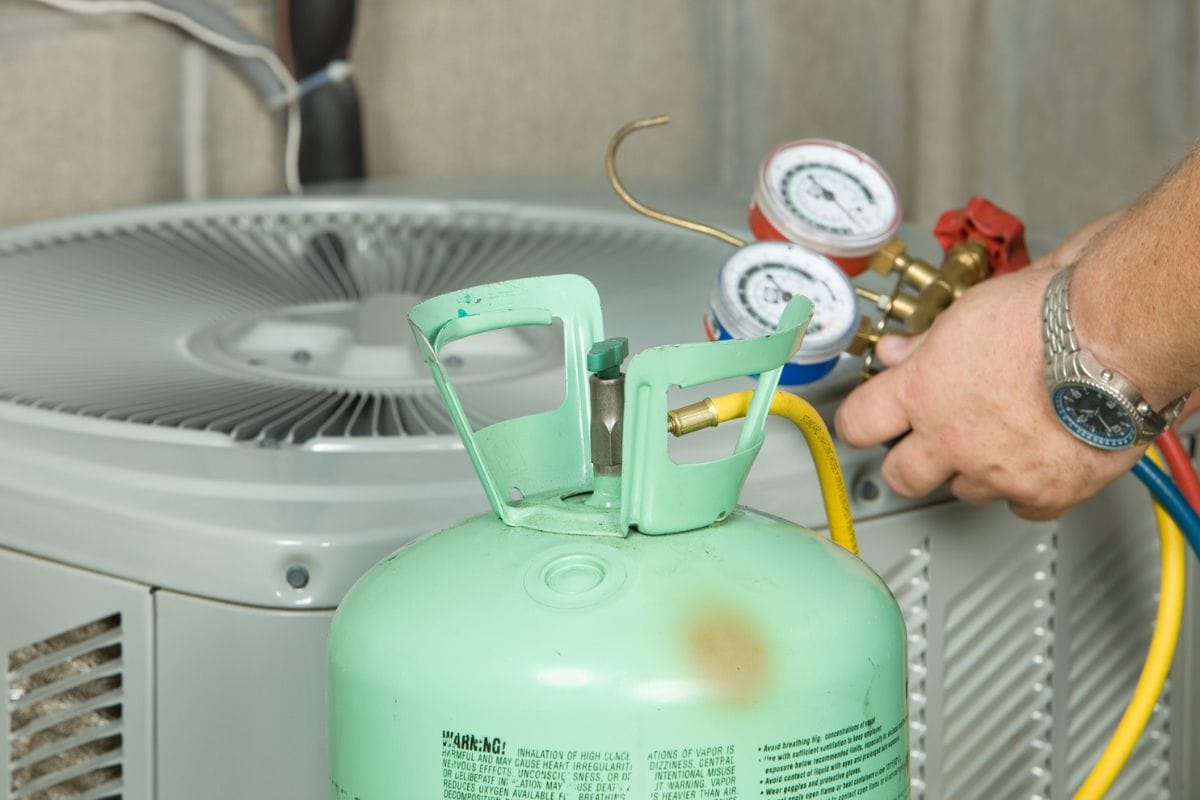
Furthermore, only an HVAC licensed technician can recharge your freon safely. Freon is highly flammable and very toxic. So, mishandling it can cause serious health risks that include:
- Fainting
- Coughing
- Breathing issues
- Heartburn sensation
- Eye irritation or loss of vision in the worst-case scenario
So we strongly suggest you refrain from refilling freon yourself unless you've enough skills, experience, or knowledge to deal with it. Otherwise, call an HVAC expert and let them recharge your AC to get it working again.
How Long Should Compressor And Freon Last?
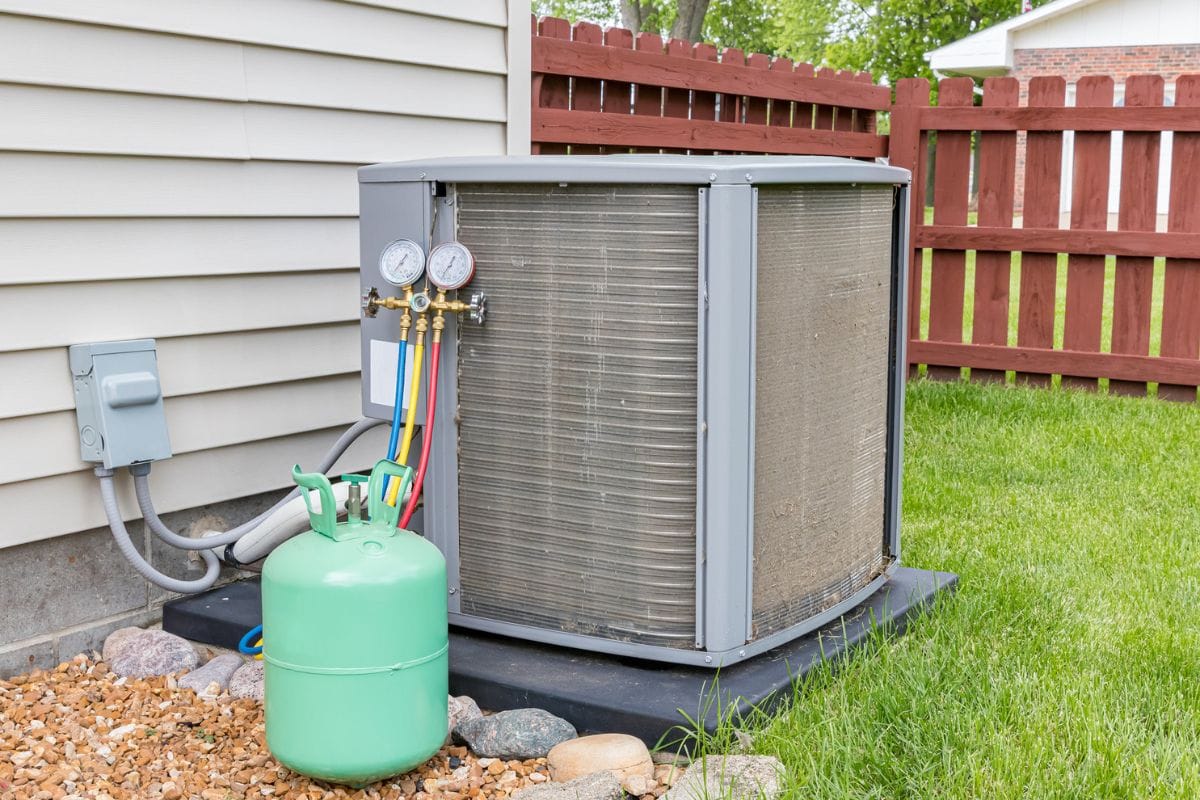
Assuming you always follow the ideal service maintenance in your AC system, you can expect your compressor and freon to last around 12–15 years.
However, this average life expectancy varies depending on how you care for your compressor or your entire AC system.
In Closing
This article shows us that low freon in your AC coil can inevitably damage your compressor in the long run. Remember that your HVAC system has several vital components that work together to operate your compressor correctly.
Learning the signs of low freon in the AC system will help your compressor avoid early failure. Also, if you suspect a freon leaking problem around your HVAC, act accordingly and test your surroundings.
Freon is so dangerous, so please deal with it with extreme caution.
If you find this topic interesting, kindly read our other article below!

